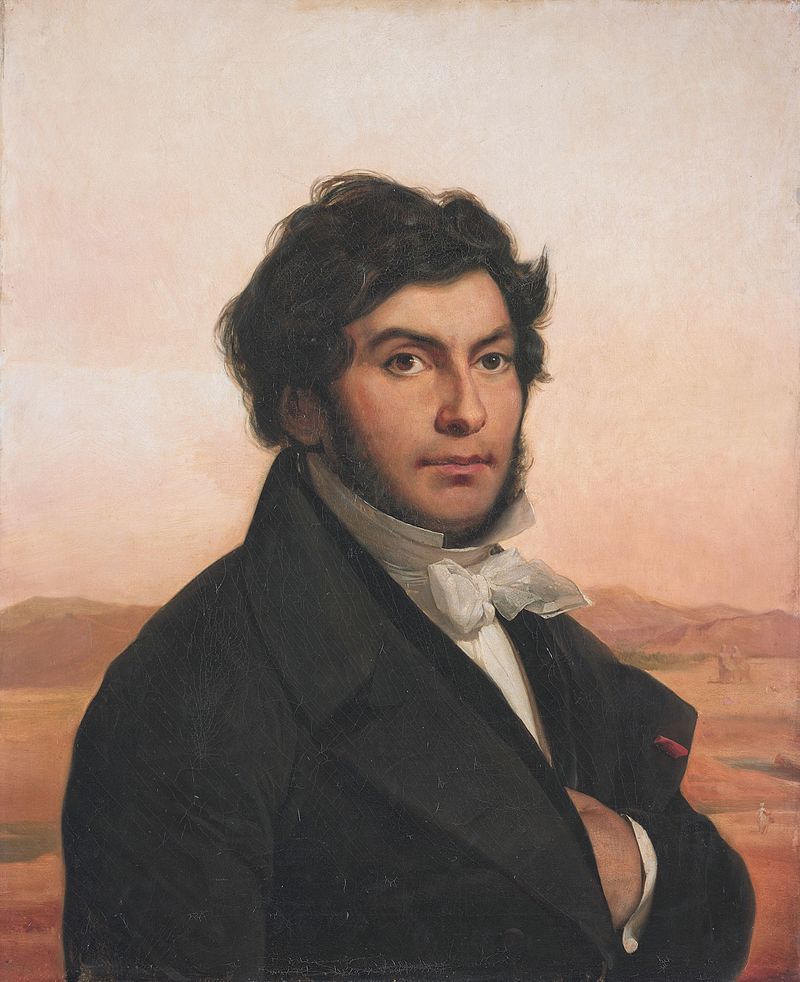Champollion deciphers hieroglyphics
Jean-François Champollion (Champollion le jeune; 23 December 1790 – 4 March 1832) was a French scholar, philologist and orientalist, known primarily as the decipherer of Egyptian hieroglyphs and a founding figure in the field of Egyptology. A child prodigy in philology, he gave his first public paper on the decipherment of Demotic in 1806, and already as a young man held many posts of honor in scientific circles, and spoke Coptic and Arabic fluently. During the early 19th-century, French culture experienced a period of 'Egyptomania', brought on by Napoleon's discoveries in Egypt during his campaign there (1798–1801) which also brought to light the trilingual Rosetta Stone. Scholars debated the age of Egyptian civilization and the function and nature of hieroglyphic script, which language if any it recorded, and the degree to which the signs were phonetic (representing speech sounds) or ideographic (recording semantic concepts directly). Many thought that the script was only used for sacred and ritual functions, and that as such it was unlikely to be decipherable since it was tied to esoteric and philosophical ideas, and did not record historical information. The significance of Champollion's decipherment was that he showed these assumptions to be wrong, and made it possible to begin to retrieve many kinds of information recorded by the ancient Egyptians.
Champollion lived in a period of political turmoil in France which continuously threatened to disrupt his research in various ways. During the Napoleonic Wars, he was able to avoid conscription, but his Napoleonic allegiances meant that he was considered suspect by the subsequent Royalist regime. His own actions, sometimes brash and reckless, did not help his case. His relations with important political and scientific figures of the time, such as Joseph Fourier and Silvestre de Sacy helped him, although in some periods he lived exiled from the scientific community.




























































0 comments
Sign in or create a free account